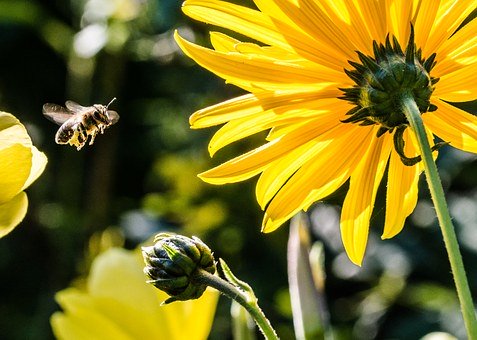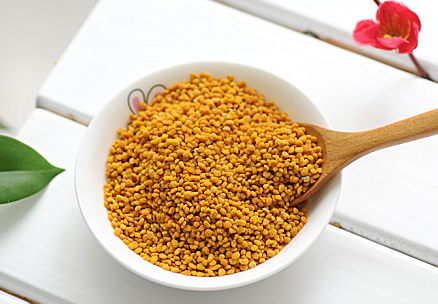Can Bee Pollen Aid in Managing Chronic Prostatitis? Exploring Its Health Benefits and Effectiveness
Date:2024-10-28 click:0
Bee pollen, a nutrient-rich byproduct of honey production, has gained attention for its potential health benefits, including support for prostate health. Known for its extensive nutrient profile, bee pollen has been valued as a natural supplement for boosting immunity and managing chronic conditions. Although some skepticism exists, its high levels of essential minerals, vitamins, and antioxidants have prompted many to consider it in holistic treatments for chronic prostatitis.

Bee pollen contains 28 essential minerals, including calcium, iron, magnesium, and potassium. Additionally, it provides various vitamins like B-complex, folate, biotin, and vitamins E, C, and D, making it a powerhouse of nutrition. The protein content of bee pollen varies by source but generally ranges from 10-35%, making it a rich source of amino acids that support muscle function, tissue repair, and immune health.
These nutrients work together to enhance bodily functions and promote overall wellness. Bee pollen's nutrient-rich profile strengthens the body’s metabolism, balances essential nutrients, and benefits several organ systems. Specifically, it's known for improving kidney function, supporting digestive health, enhancing sperm vitality, and regulating male hormones. These benefits make it particularly valuable for prostate health, helping to alleviate symptoms associated with chronic prostatitis.
How Bee Pollen Supports Prostate Health
Bee pollen not only offers nutritional support but also contains active compounds that may specifically benefit prostate health. Research shows that its anti-inflammatory properties help to relieve discomfort and swelling associated with chronic prostatitis. Bee pollen's antioxidants, such as flavonoids and phenolic compounds, can neutralize free radicals, reducing oxidative stress, which is a known contributor to chronic inflammation in the prostate.
Additionally, bee pollen's impact on hormone balance is particularly relevant for male health. Certain compounds in bee pollen may help regulate testosterone levels, which play a role in maintaining prostate health. By supporting hormonal stability, bee pollen can help mitigate symptoms of chronic prostatitis and promote overall male reproductive wellness.
In addition to its benefits for the prostate, bee pollen's natural antibacterial properties can help fight infections that might exacerbate prostatitis symptoms. Studies have demonstrated that bee pollen may inhibit the growth of certain bacteria, providing a natural approach to combating low-grade infections without disrupting the body's healthy bacteria.

Boosting Immunity with Bee Pollen
A significant aspect of bee pollen's therapeutic potential is its ability to enhance immune function. Bee pollen promotes the development of immune cells and accelerates antibody production, enhancing the body's natural defenses. It stimulates the activity of T-lymphocytes and macrophages, which are essential for targeting infections and repairing tissue damage. By boosting the immune system, bee pollen provides a defense mechanism that helps the body manage chronic conditions, including prostatitis, more effectively.
Research also shows bee pollen can prevent the damage caused by immunosuppressive drugs, as it works to restore immune organs. By enhancing the immune response, bee pollen can help individuals better manage prostatitis symptoms and reduce the likelihood of recurring infections or inflammation.
Clinical Studies Supporting Bee Pollen for Prostatitis
Bee pollen's benefits have been validated by several studies. Dr. Herescu, an endocrinologist from Romania, treated 150 patients with chronic prostatitis using bee pollen, reporting a 70% effectiveness rate. In another study conducted in 1962, researchers observed an 80% success rate in 100 chronic prostatitis patients who used bee pollen as part of their treatment plan. In a 1967 survey of 12 men with prostatitis, 10 reported significant improvement after taking bee pollen supplements.
While these studies provide encouraging results, it's important to remember that individual responses to bee pollen may vary, and some people may experience allergic reactions. Consulting a healthcare professional before starting any new supplement is advised, especially for individuals with known allergies to pollen or bee products.
Complementary Treatment with Diuretic and Anti-inflammatory Pill
To maximize the effectiveness of bee pollen, it can be complemented with herbal treatments like the Diuretic and Anti-inflammatory Pill. This herbal remedy is crafted to improve blood circulation within the prostate, aiding in the removal of toxins and reducing inflammation at the source. It works by promoting blood flow in and around the prostate gland, clearing lipid deposits in the blood vessels, and directly targeting inflamed areas.
Diuretic and Anti-inflammatory Pill helps restore normal blood circulation, enhances oxygen supply to prostate tissues, and opens immune pathways to aid the body’s self-healing processes. After treatment, prostate tissue gradually returns to normal, inflammation subsides, and the risk of recurrence is reduced. Made from natural herbs, this pill has no side effects, making it a safe option for long-term management.
A Holistic Approach to Prostate Health
Although bee pollen and herbal treatments like the Diuretic and Anti-inflammatory Pill can offer significant support, they work best as part of a comprehensive health plan. Maintaining a balanced diet, engaging in regular physical activity, and avoiding triggers like stress and excessive alcohol can further support prostate health. Consulting a healthcare professional for guidance ensures a safe and effective approach to managing chronic prostatitis.
You may also be interested in:



